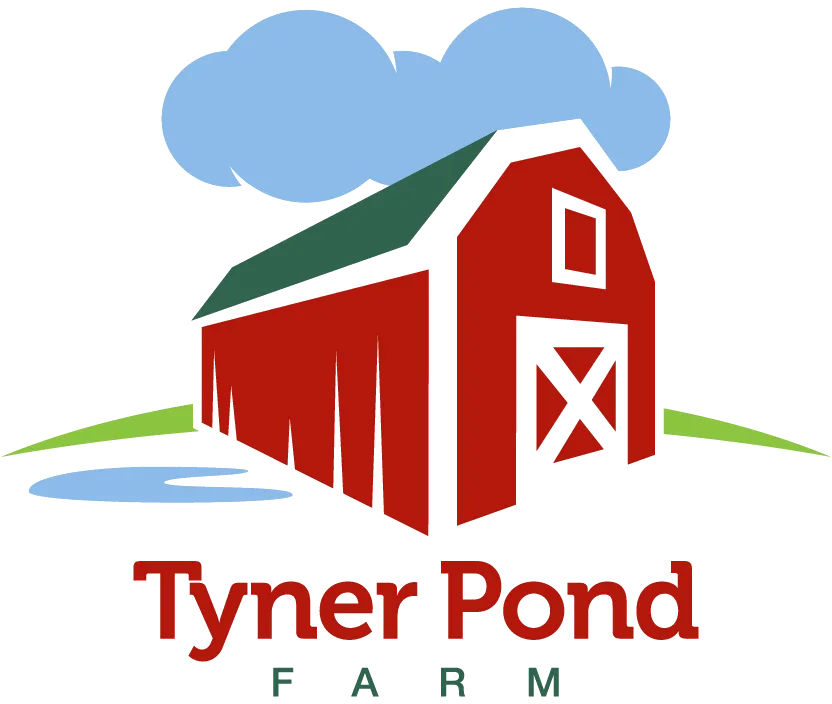by Chris Baggott
Share
by Chris Baggott
Share

Our journey to Regenerative agriculture began when I read “The Omnivore’s Dilemma: A Natural History of Four Meals”. This book, written by Michael Pollan, explores the food choices we make and the complex food systems that produce what we eat. In the book, Pollan visits various farms and food producers to better understand how our food is produced and how different food choices impact the environment, animal welfare, and human health.

Joel and Mark in Training
Joel Salatin plays a significant role in the book as one of the farmers that Pollan visits and profiles. Salatin’s Polyface Farm is presented as a model of sustainable and regenerative agriculture, and Pollan describes in detail the methods that Salatin uses to raise chickens, cattle, and pigs on pasture. Salatin’s philosophy of holistic and regenerative farming is contrasted with the industrial agriculture practices that dominate the American food system, and the book highlights the benefits of regenerative agriculture for both the environment and human health.
The role of Joel Salatin in “The Omnivore’s Dilemma” has helped to bring attention to his work and has played a significant role in popularizing the concepts of regenerative agriculture and sustainable food production. The book has also inspired many people to seek out and support sustainable food producers like Tyner Pond Farm, and to adopt more environmentally positive food choices.
Joel Salatin is an American farmer, author, and speaker who advocates for sustainable and holistic farming practices. He is best known for his work at Polyface Farm in Virginia, which is recognized as one of the leading examples of regenerative agriculture in the world. Salatin believes that industrial agriculture is harmful to the environment, animals, and human health, and that small-scale, diversified, and regenerative farming practices are the solution. He has written several books on the subject and is a sought-after speaker on sustainable agriculture.
Joel Salatin manages his grassfed cattle using a holistic, rotational grazing method. This involves moving the cattle to fresh pasture every 12 to 24 hours, which mimics the natural grazing patterns of wild herds. The rotation of the cattle allows the grass to recover and regrow, promoting healthy soil and plant growth. The cattle also play a role in spreading manure and fertilizing the fields which leads to a more fertile and diverse ecosystem. By managing the grass and the cattle in this way, Salatin is able to produce healthy, nutrient-dense meat while also regenerating the land. Additionally, he avoids the use of antibiotics, hormones, and other chemicals, instead relying on natural processes to maintain the health of his cattle.

Pasture Raised chicken on Tyner Pond Farm
Joel Salatin also raises chickens on pasture using a mobile coop system, also known as “chicken tractors.” These are lightweight, movable coops that provide shelter and protection for the chickens while they graze on the pasture. Salatin moves the chicken tractors daily to fresh pasture which provides the chickens with a constantly changing source of food (insects, seeds, and plants) and reducing the risk of disease. The chickens also play a role in aerating the soil, fertilizing the land with their manure, and controlling pests. By raising chickens in this way, Salatin is able to produce high-quality, nutrient-dense eggs and meat while also regenerating the land. This method of raising chickens on pasture is often considered a model of sustainable and regenerative agriculture.
If you’re interested in learning more, Joel Salatin is the author of several books on sustainable agriculture and food production. Some of his most famous books include:
- “Pastured Poultry Profit$”: This book provides a comprehensive guide to raising chickens on pasture, including details on housing, feeding, and marketing.
- “Folks, This Ain’t Normal”: In this book, Salatin shares his insights on sustainable agriculture, food production, and the importance of local food systems.
- “The Sheer Ecstasy of Being a Lunatic Farmer”: This is a collection of essays and stories that provide a behind-the-scenes look at life on Polyface Farm and the challenges and rewards of sustainable agriculture.
- “Salad Bar Beef”: This book explores the benefits of grass-fed beef and provides practical advice for farmers and consumers who want to support sustainable food systems.
These books have helped to establish Salatin as a leading voice in the sustainable agriculture movement and have inspired us here to start Tyner Pond Farm and adopt regenerative farming practices.
Early‑Spring Straw, Microbial Firepower, and Daily Moves: the Science Behind Our Pastured Poultry Heavy April rains leave Indiana fields soggy and the grass still short.
You Don’t Have to Live on the Coast to Eat Like the Mediterranean By Chris Baggott, Tyner Pond Farm The Mediterranean diet gets a lot
Why It’s So Hard to Get a Straight Answer About Food By Chris Baggott, Tyner Pond Farm I read an article in the Los Angeles
Not all grass-fed beef is created equal. Beef from cattle grazed on fertilized monoculture pastures, by definition, cannot match the nutrient density of beef raised




